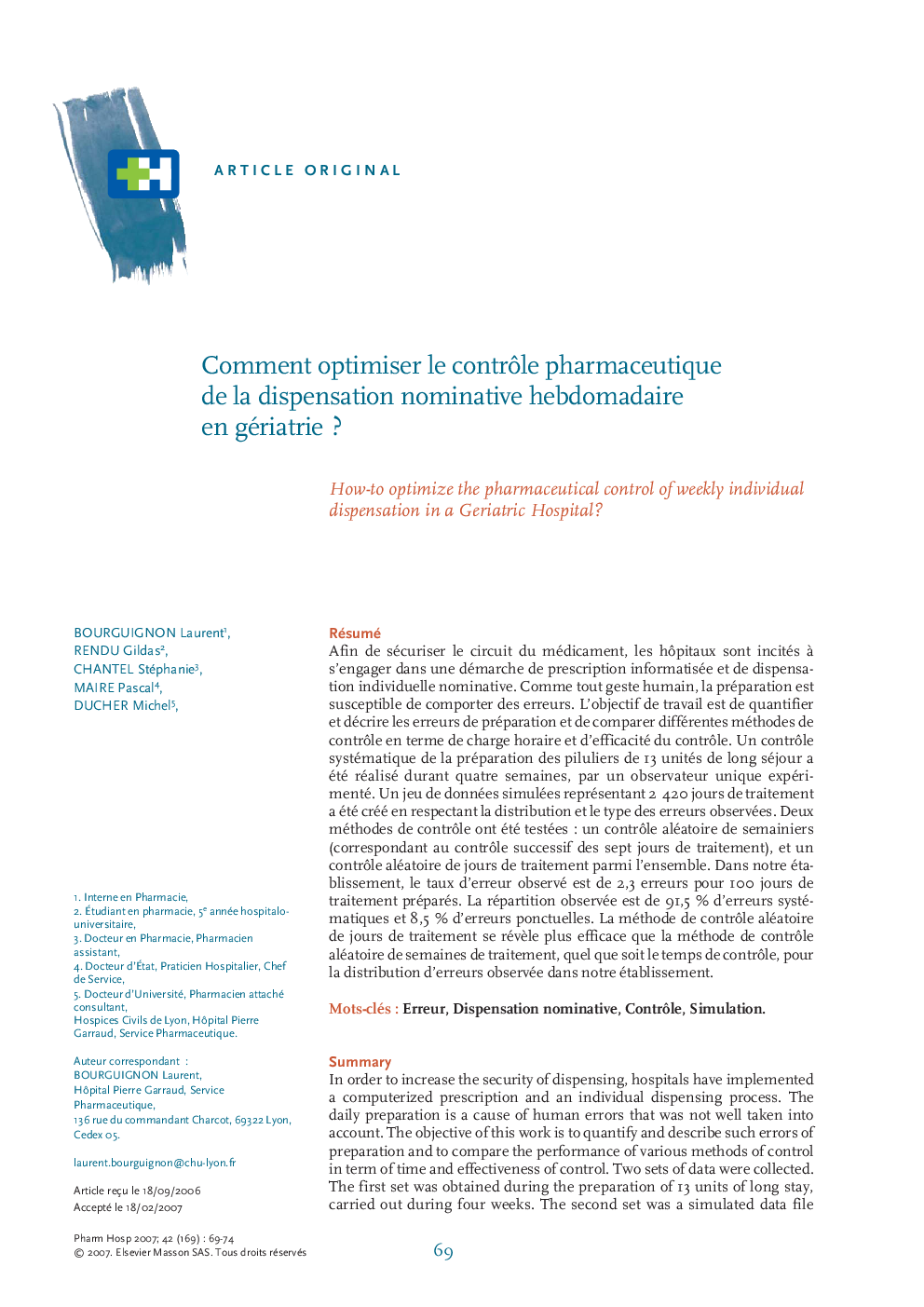| Article ID | Journal | Published Year | Pages | File Type |
|---|---|---|---|---|
| 1086074 | Le Pharmacien Hospitalier | 2007 | 6 Pages |
Abstract
In order to increase the security of dispensing, hospitals have implemented a computerized prescription and an individual dispensing process. The daily preparation is a cause of human errors that was not well taken into account. The objective of this work is to quantify and describe such errors of preparation and to compare the performance of various methods of control in term of time and effectiveness of control. Two sets of data were collected. The first set was obtained during the preparation of 13 units of long stay, carried out during four weeks. The second set was a simulated data file representing 2 420 days of treatment, based on the distribution and the type of errors observed. Two control methods were tested: a random control of a week of treatment (corresponding to seven successive days of treatment) and a control of scattered days of treatment. In our hospital, the error rate observed is of 2.3 errors for 100 days of treatment prepared. The distribution observed is 91.5% of systematic errors and 8.5% of sporadic errors. Randomizing the days of treatment appears to be a more effective method of control than randomizing the weeks of treatment. This result is independent of the duration of control, for the distribution of errors observed in our hospital.
Related Topics
Health Sciences
Pharmacology, Toxicology and Pharmaceutical Science
Pharmacology, Toxicology and Pharmaceutics (General)
Authors
Laurent Bourguignon, Gildas Rendu, Stéphanie Chantel, Pascal Maire, Michel Ducher,
